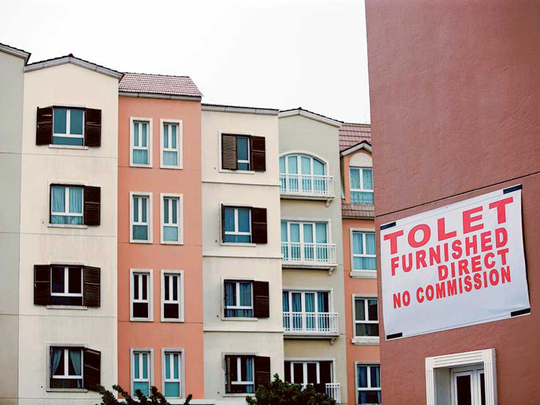
Dubai: The revised UAE Bankruptcy Law could provide its own boost to the home rental market.
More UAE based businesses — even mid-sized ones — could start taking on residential leases on behalf of their employees when the Law comes into effect. The new version of the Law stipulates that cheques issued by commercial entities will not be considered a criminal offence if they bounce.
According to market sources, once this comes into effect by early next year, businesses will then have the legal safety net to take up rental leases on their employees’ behalf and not have to worry about getting slapped with a criminal offence over a cheque default.
Instead, it will be treated as a civil offence and thus do not come with the stringent penal requirements that accompany a criminal act. (But a bounced cheque by an individual still constitutes a criminal act.)
Already, some have sounded out their legal teams to check up on the options open to them.
“If more companies go in for direct leasing on their employees’ behalf, this will have a decisive effect on the residential market — and particularly on rents — in the UAE,” said a source. “Because they can take on “bulk” leases, these “tenants” will be able to negotiate far better terms than if their employees were to do so individually with landlords.
“In an uncertain market, landlords could even welcome the convenience of entering an agreement with a known corporate entity.”
Rental allowance
Currently, the multinational firms take up leases on behalf of their senior and mid-management. Local companies with a sizeable blue-collar workforce in the service or manufacturing sectors also do the same.
But the vast majority of businesses have preferred paying rental allowances as part of their employees’ take-home pays than get involved in the act of leasing their homes.
But all that could change. “Mid-sized companies could start taking on such leases as a mechanism, to retain employee talent,” said Sameer Lakhani, CEO of Global Capital Partners. “Rather than limit it to the CEO, MD or general manager, they could extend the facility to other senior executives up to a certain rank.
“Apart from talent retention, it could also be used as an incentive by employers to attract potential from outside. Employers have to get creative in ways to bring the best to work for them. This trend of direct leasing — if it sustains itself — promises to change the structure of the residential rental market.”
This would also strip away one of the biggest concerns the newly recruited have when they land in Dubai — the time taken to find themselves a suitable home. If their employers can offer ready-to-move in accommodation, that in itself is as good an incentive as any.
For companies doing so, it will mean adding to the paperwork — all of the lease agreements and the sundry add-ons that come with them — and commitments — via the issued cheques and the upkeep of the leased properties.
Gather momentum
These additional costs do imply a higher cost base for companies, but one that will permeate through the market gradually and gather momentum only when economic conditions are more robust. And it also means companies get a chance to change their employee incentive schemes in line with market needs.
“Currently, both the job market and the rental situation is on the soft side — but when the market picks up and rentals start gaining, that’s when such large-scale corporate leases of residential properties exert a major influence,” said a market source.












